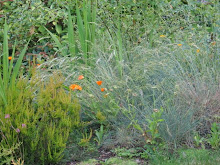The writer continued:
The Evliya Çelebi Way is primarily an equestrian route designed to generate interest in Turkey’s vanishing horse culture, thereby reconnecting Turkish people today with their heritage. Combining the romance of horseback travel in remote but stunning landscapes with rediscovery of Turkey’s historical past, it must appeal to all who are concerned to preserve Turkey’s heritage through sustainable tourism.
The Evliya Çelebi Way (EÇW) will be realised in 2 phases:
·Phase I: the Evliya Çelebi Ride (EÇR) a long-distance horseback ride along the route for the purpose of navigating it and gaining familiarity with local conditions
·Phase II: the establishment of the EÇW on the basis of the experience gained on the EÇR
The Evliya Çelebi Way: the Concept
The EÇW will be a marked route winding its way through open countryside amidst the burgeoning population centres of western Turkey. It will be an invitation both to local people to escape the town and gain a wider appreciation of the region in which they live, and also to visitors from further afield. It passes through countryside that seems familiar, yet is visited only by the few who choose to venture away from the main thoroughfares. The EÇW offers access to magnificent landscapes of towering mountains, rich agricultural valleys and hillsides, forests, marshes and little-known villages. These are ideal conditions for short or long treks, on horseback or on foot.
The establishment of the EÇW will:
·encourage preservation of the region’s natural and historical landscapes and unique cultural environment
·promote economic prosperity through sustainable tourism
·act as a catalyst for local development projects in the impoverished countryside
·provide an educational and recreational resource for local young people
·promote knowledge about vanishing indigenous horse breeds and equestrian traditions, and raise awareness about the value of their preservation
·foster a sense of history by means of projects to record the stories of the villagers and townsfolk whose lives have depended on horses, and who continue to keep them


No comments:
Post a Comment